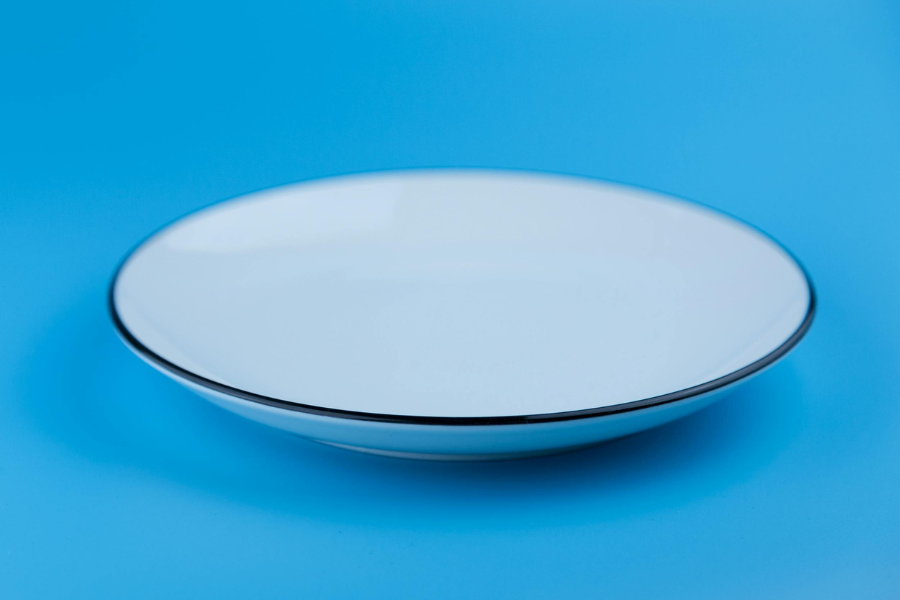The most lifestyle-friendly approach to intermittent fasting would be to lose the eating window. It is by no means necessary at all. The fasting window is more important than any structured feeding window.

In this article, we are going to get into some great strategies you can utilize every day to make intermittent fasting more lifestyle friendly without having to worry about adhering to some strict “eating window”.
The Problem with the Eating Window
The eating window doesn’t optimize for your everyday lifestyle. Some people try to adhere to a strict eating window between 12:00pm and 8:00pm or 11:00am and 5:00pm, but they can’t be consistent with it.
Intermittent fasting is easy to sustain every day, but eating windows are not. Let’s say you want to commit to an eating window between the hours of 11:00am and 7:00pm. This would take away your ability to have a social life at night.
It would be difficult for close friends to invite you out for dinner or drinks if you’re not willing to consume calories after 7:00pm.
If your goal is fat loss or weight maintenance, tracking your caloric intake is the most important thing.
If it’s 9:00pm and you still have 800 calories left to play with, are you not supposed to have your last bit of food because you’re 2 hours passed your eating window?
Situations may come up in your day where you can’t always take in all your calories by the designated time.
You shouldn’t worry about having a strict cut off time for your day of eating. The next section of this article will tell you exactly what to do instead.
Fast From the Time You Wake Up in the Morning

Doing a waking fast would be far more beneficial to your intermittent fasting lifestyle as opposed to having a strict start and stop time to your eating routine.
Essentially, you would be skipping morning breakfast and fasting for the first 4-8 hours of the day. For example, if you typically wake up at 6:00am to get ready for work, you will delay your breakfast until 10:00am or 2:00pm.
If you’re within caloric limits, you can end your “eating window” at bedtime or whenever its most convenient for you. You would still lean down assuming you are at a calorie deficit by the end of the day.
The benefits of traditional intermittent fasting would still be there, which includes:
- An increase in human growth hormone or HGH
- An Increase in metabolic rate aka fat burning
- Reduction in blood sugar levels
- Improved work productivity and focus
- Reducing the risk of cancer
You would not be missing out on any of the health or fitness benefits of traditional IF by doing away with the eating window.
Why Skip Breakfast?
Theoretically, there is no such thing as “skipping” breakfast. You are just reframing from eating as soon as you wake up in the morning. When you fast for the first 6 or more hours into the day, you would be surprised how much energy you would have.
The body would switch from burning stored carbohydrates/glucose for energy to burning body fat for energy.
There is nothing inherently wrong with consuming carbohydrates. They are the body’s preferred fuel source for resistance training or anaerobic activity. Carbohydrates also aid in the development of muscle.
However, there is a benefit to not eating so many carbs during the day and allocating most of your carbs to the night. You would be able to better manage your insulin and cravings.
Protein and fats can elevate insulin, but carbs elevate insulin at the fastest rate.
In a later article, we will talk more about the benefits of backloading your carbohydrates.
Another reason to skip breakfast is optimal caloric management. When you’re eating a high- calorie meal early in the day, it can be difficult to stay in a calorie deficit.
- Food would constantly be on your mind.
- You would get the urge to snack.
- Sugar cravings would be high.
- Dietary adherence would be low.
This may not be the case if you’re somebody with a small appetite. On the other hand, if you’re someone with a large appetite, skipping breakfast can be very advantageous to you.
If you eat a big meal too early in the day, you might still want a big meal at night for dinner. This is one of reasons why so many people struggle to lose fat, because they are eating too many calories during the daytime.
They would be better off breaking their fast with a small low-calorie, high-protein meal during the day and saving most of their calories for the evening time.
Sympathetic Vs Parasympathetic Nervous System
Fasting promotes what’s known as your Sympathetic Nervous System. This is where you feel alert, energized, focused, and creative. You only want to be in this state during the daytime.
This is optimal for:
- Maintaining high productivity at work.
- Completing physically demanding task
- Being able to escape dangerous situations.
- Sustaining high energy.
Feeding promotes what’s known as your Parasympathetic Nervous System. This is your rest and digest mode. You can also think of this as your reward pathway.
You probably remember Saturday mornings as a kid going to the pancake house with your family. You would order a stack of buttermilk pancakes, a side of bacon, scrambled eggs with cheese, and a tall glass of orange juice.
You ate the whole meal and by the time you got home, you were ready for a nap at 12:00 in the afternoon.
Not only did you eat close to a day’s worth of calories, but you ate a lot of carbohydrates very early in the day. That is what triggers the parasympathetic nervous system.
Rest and digest mode is most optimal for the nighttime. It would be better for your sleep to save most of your calories, especially carbs for the night.
Carbs release a neurotransmitter in your brain called serotonin. This helps you feel relaxed and sleepy. Eating most of your carbs at night can promote fat loss, because it optimizes for better sleep quality in a calorie deficit.
You don’t want to end your day of eating with a protein shake. It’s better to have some food dense in carbohydrates before bed.
Can You Consume Anything During You’re Waking Fast?

Yes, you can consume beverages that don’t contain a caloric value. The best beverages to have would be things such as:
- Water
- Black Coffee
- Caffeinated Tea
- Sparkling Water
- 0-calorie energy drinks
Black coffee should be the main beverage you consume when fasting. It’s rich in antioxidants. It contains 0 calories and would not cause an insulin spike.
Black coffee can help enhance your sympathetic nervous system by suppressing your appetite and getting you cognitively ready to get work done during the day.
A great thing about consuming black coffee is that you would drink it slowly. It would do a better job at mitigating your appetite during the fast.
It makes sense, since black coffee is so bitter, you would have to drink it slowly for it to be more enjoyable.
When it comes to drinking your coffee with cream and sugar, you are:
- Most likely going to drink it too quickly.
- Cause a significant insulin increase, thus taking you out of the fasted state.
- Reducing human growth hormone, therefore missing out on the benefit of increased fat burning and muscle preservation
If you’re going to have cream and sugar with your coffee, make sure you do it during your feeding period. Up to 50 calories of cream and sugar is fine.
For more information about the amazing benefits of coffee, check out this article How Coffee Can Improve Your Health and Fitness.
Conclusion
The main take aways from this blog post in relation to lifestyle intermittent fasting are:
- Lose the eating window. The fasting window is more important.
- Fast about 4-8 hours from the time you wake up in the morning. This will help you manage your caloric intake more optimally.
- Finish your day of eating whenever it’s most convenient for you. If you want to eat all the way up until bedtime you can.
- Use black coffee strategically to keep your appetite suppressed during the waking fast. If you can’t tolerate black coffee for the life of you, drink some sparkling water or caffeinated tea as an alternative.
This is how you fast for lifestyle. During the day, you’re keeping the sympathetic nervous system high. You are productive.
During the night, you are keeping the parasympathetic nervous system high. You are rewarded.

3 Responses